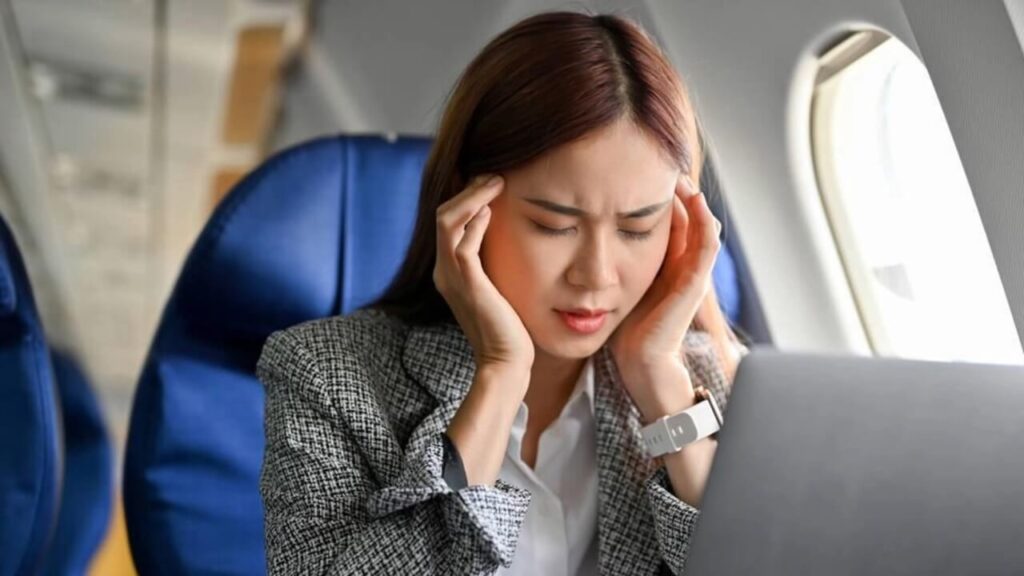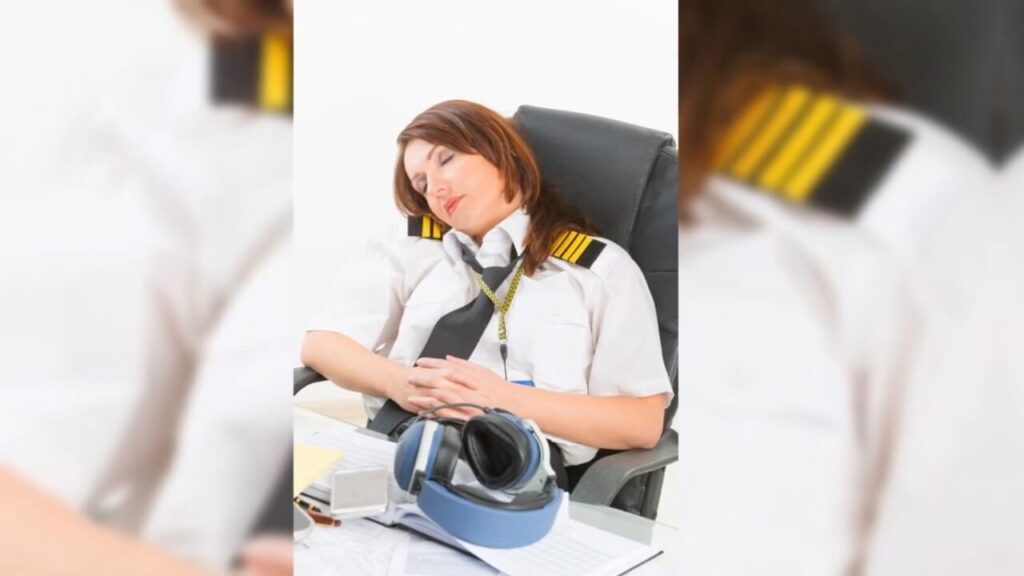If you face problems like vomiting, sweating, dizziness, or nervousness while traveling in a car, bus, plane, or any other vehicle, then some treatments are necessary for you.

Motion sickness is caused by distraction. This usually happens when you are traveling by car, boat, plane, or train. During that time, you feel vomiting or dizzy.
According to doctors, motion sickness is usually caused by stomach upset. Some women have trouble maintaining their balance, sweat or complain of headaches while traveling.

In such a situation, it is important to know the solutions to get rid of this recurring problem while travelling.
Problems for Children and Women
Children aged 2 to 12 years are more likely to suffer from motion sickness. Pregnant women are also more likely to experience this type of disorder.
Keep in mind that motion sickness can occur during any type of travel, whether on land, in the air or on water. Sometimes motion sickness can occur even during adventure rides or playgrounds.
Many medicines exist to treat this disease. Most only stop the onset of symptoms. Most of the people suffering from motion sickness prepare everything including their medicines before leaving home.

Let’s delve into the topic of motion sickness in children and pregnant women.
Motion Sickness in Children:
Age Group: Children between 2 and 12 years are particularly susceptible to motion sickness. Their developing inner ear and nervous system make them more prone to experiencing symptoms.
Causes: Motion sickness occurs when there’s a conflict between sensory inputs. For example, when a child is in a moving vehicle (like a car, bus, or train), their inner ear detects motion, but their eyes may perceive a stationary environment (such as looking down at a book or screen). This sensory mismatch leads to symptoms.
Symptoms: Common symptoms include nausea, vomiting, dizziness, and pallor. Children may also complain of headache or stomach discomfort.
Prevention and Management:
- Seat Position: Seating the child where they can see the horizon (e.g., by a window) can help reduce symptoms.
- Fresh Air: Adequate ventilation and fresh air can alleviate discomfort.
- Distraction: Engaging the child in conversation or providing distractions (such as music or games) can divert their attention from motion.
- Medications: Some over-the-counter antihistamines (like dimenhydrinate or meclizine) can help prevent or reduce symptoms. However, consult a pediatrician before using any medication.
- Gradual Exposure: Gradually exposing the child to motion (e.g., short trips) can help build tolerance.
Preparing for Travel:
- Parents often prepare by ensuring the child has taken any necessary medications before leaving home.
- Having a plastic bag or container handy in case of vomiting is also advisable.
Motion Sickness in Pregnant Women:

- Hormonal Changes: During pregnancy, hormonal fluctuations affect various systems, including the inner ear and vestibular system.
- Increased Susceptibility: Pregnant women are more likely to experience motion sickness due to heightened sensitivity to sensory mismatches.
- Symptoms: Similar to children, pregnant women may experience nausea, vomiting, dizziness, and discomfort.
Precautions and Remedies:
- Choose Comfortable Seating: Opt for seats with good visibility and minimal motion (e.g., near the front of a vehicle).
- Hydration and Snacking: Staying hydrated and having light snacks can help.
- Ginger: Some pregnant women find relief from ginger-based products (ginger tea, candies, or capsules).
- Avoid Strong Odors: Strong smells can exacerbate symptoms.
- Consult a Healthcare Provider: Pregnant women should consult their doctor before taking any medications for motion sickness.
Remember that individual experiences vary, and what works for one person may not work for another. It’s essential to tailor strategies based on the specific needs of children and pregnant women. If symptoms persist or worsen, seeking medical advice is crucial. 😊🌟
Children and pregnant women are more likely to experience motion sickness.

Pay Attention to Some Things
- If traveling by air, sit on the window or front seat.
- Sit towards the front on trains, boats, or buses and try to avoid facing the back.
- If possible, open a car window for fresh air and avoid reading.
- Try to sit in front of the car or bus. If possible, drive yourself; this will not cause you any problems.
- Get plenty of rest the night before traveling. Do not smoke, etc.
- Eat well, so that your stomach remains healthy. Avoid oily or acidic foods before and during travel.
- Try home or alternative remedies along the way. Doctors say that mint can help in this, ginger is also useful.
- For pilots, astronauts or others who experience motion sickness regularly or as part of their profession, there are some important tips you can take from them. Breathing exercises have also been found to help.

Let’s explore some practical tips to prevent motion sickness during travel:
Choosing the Right Seat:

- Air Travel: Opt for a window seat or sit towards the front of the plane. This provides better visibility and minimizes motion sensations.
- Trains, Boats, and Buses: Sit towards the front to reduce motion-related discomfort. Avoid facing backward.
- Car Travel: If you’re driving, sitting in the front seat can help. Open a window for fresh air and avoid reading while in motion.
Rest and Preparation:

- Rest Well: Get a good night’s sleep before traveling. Fatigue can worsen motion sickness.
- Avoid Smoking: Smoking can exacerbate symptoms, so refrain from smoking before or during travel.
Dietary Considerations:

Healthy Eating: Consume light, balanced meals. Avoid oily or acidic foods, especially before and during travel.
Home Remedies: Some natural remedies may help:

- Mint: Chewing mint leaves or sipping mint tea can alleviate symptoms.
- Ginger: Ginger has anti-nausea properties. Try ginger tea, candies, or capsules.
Self-Driving:

- If possible, drive yourself. Being in control of the vehicle reduces the likelihood of motion sickness.
For Professionals (Pilots, Astronauts, etc.):

Those who experience motion sickness regularly can learn from professionals:
- Breathing Exercises: Deep, rhythmic breathing can help manage symptoms.
- Adaptation: Gradually expose yourself to motion to build tolerance.
Remember that individual responses vary, so find what works best for you. Safe travels! 😊🚗✈️🚢
Face Forward
The problem of motion sickness is more common in those people who are unable to realize that they are travelling. Some people have the misconception that as soon as they sit in the car, they will sweat, suffer from vomiting, dizziness or headache. For this, you can take medicine after consulting a doctor. Try to sit in the front seat and keep the window open. Book a window seat on a train or flight.
While traveling in the train, keep in mind that your face should be forward. Do not study or talk on the phone. During the journey, try to close your eyes and concentrate on your breathing. If you are going in a boat, try to sit in the middle or towards the front. You will notice less when the boat hesitates. Apart from this, some home remedies can also be adopted.
Let’s explore the strategies to minimize motion sickness and ensure a more comfortable journey:
Awareness and Misconceptions:

- Some people experience motion sickness without realizing they are traveling. Common symptoms include sweating, vomiting, dizziness, and headaches.
- It’s essential to recognize these symptoms and take appropriate measures.
Medication and Consultation:
- If you’re prone to motion sickness, consult a doctor before traveling. They can recommend suitable medications.
- Sit in the front seat of a car and keep the window open for fresh air.
Choosing Seats:

- Air Travel: Book a window seat on flights. This allows you to focus on the horizon and reduces motion-related discomfort.
- Train Travel: Face forward while on a train. Avoid reading or talking on the phone during the journey.
- Boat Travel: Sit in the middle or towards the front of the boat. You’ll notice less motion when the boat hesitates.
Mindfulness Techniques:
- Close your eyes and concentrate on your breathing during the journey. Mindfulness can help manage symptoms.
- Avoid activities that require intense focus, as they may exacerbate motion sickness.
Home Remedies:
Consider natural remedies like:
- Mint: Chewing mint leaves or having mint tea can provide relief.
- Ginger: Ginger has anti-nausea properties; try ginger tea or candies.
Remember that individual responses vary, so find what works best for you. Safe travels! 😊🚗✈️🚢



































Can I just say what a relief to uncover an individual who
actually understands what they are talking about online.
You actually understand how to bring a problem to light
and make it important. A lot more people have to look at
this and understand this side of the story. It’s surprising you aren’t more
popular given that you most certainly possess the gift. https://bio.Rogstecnologia.com.br/neilnichols
Can I just say what a relief to uncover an individual who actually understands what
they are talking about online. You actually understand how to bring a problem to light and
make it important. A lot more people have to look at this
and understand this side of the story. It’s surprising you aren’t more popular given that you most certainly possess the gift. https://bio.Rogstecnologia.com.br/neilnichols
Drugs information sheet. Cautions.
buying generic indomethacin pills
All what you want to know about medication. Read here.
Your commitment to providing comprehensive and practical content is truly inspiring,and I am grateful for the depth and practicality you bring to your writing.ダッチワイフ
Right now it looks like Movable Type is the preferred blogging platform available right now.
(from what I’ve read) Is that what you are using on your blog?
Different therapists use numerous therapeutic methods.
Химическое оборудование
включает в себя различные устройства и установки, используемые для проведения химических процессов и реакций.
Оно применяется в химической
промышленности, лабораториях и научных исследованиях.
Medicine prescribing information. Effects of Drug Abuse.
how can i get cheap prochlorperazine pills
Actual trends of pills. Get information here.
Medication prescribing information. What side effects?
cost of coumadin pill
All information about medicine. Read information here.
Medication prescribing information. Brand names.
buspirone and risperidone
Everything news about medication. Read now.
What’s up to every body, it’s my first go to see of this webpage; this website includes
awesome and really fine information designed for visitors.
Pills prescribing information. Effects of Drug Abuse.
where buy generic cozaar without rx
Some what you want to know about medicine. Get information now.
Medicines information for patients. What side effects can this medication cause?
can i purchase trazodone
Everything what you want to know about pills. Get information now.
Pretty element of content. I just stumbled upon your blog and in accession capital to claim that I acquire actually enjoyed account your weblog posts.
Anyway I’ll be subscribing in your augment or even I fulfillment
you get right of entry to persistently quickly. http://Momake.Boo.jp/cgi/sengoku/index.cgi
Pretty element of content. I just stumbled upon your blog and in accession capital to claim that I acquire actually enjoyed account your weblog posts.
Anyway I’ll be subscribing in your augment or even I fulfillment you get right of entry to persistently quickly. http://Momake.Boo.jp/cgi/sengoku/index.cgi
Pills information sheet. What side effects?
where can i buy mobic
Best about medicine. Get here.
They set your listings apart from other listings that only present photos and slide shows.
squash,人形 セックスCrossFit,
Medication information for patients. Short-Term Effects.
get cefuroxime online
Some trends of drugs. Get here.
Medicament information for patients. Long-Term Effects.
is amitriptyline an antihistamine
Some news about pills. Read here.